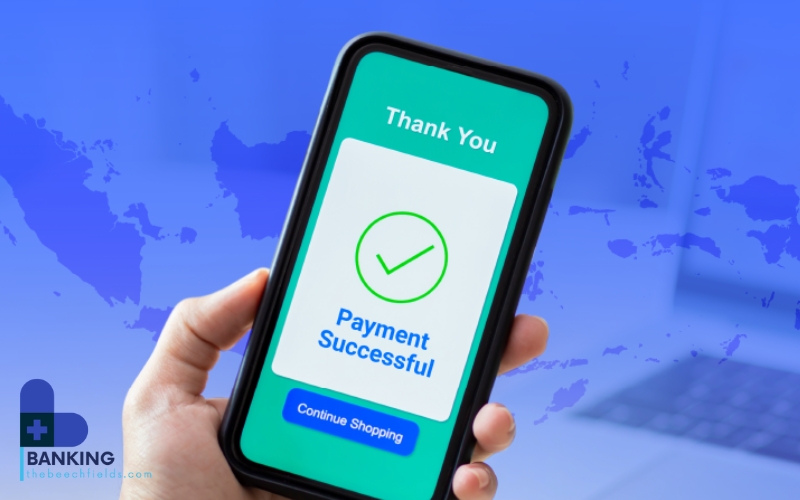Online payment has become a popular payment method in modern life, especially in the context of increasingly developing e-commerce. However, along with the convenience and speed that online payment brings, the risk of information security is also becoming a major concern for consumers. Using safe online payment methods not only protects your bank account from fraud but also gives you more peace of mind when making financial transactions. In this article, we will learn about safe online payment methods, as well as measures to protect information when making online transactions.
1. WHY DO WE NEED TO PAY ATTENTION TO ONLINE PAYMENT SECURITY?
With the strong development of e-commerce and online banking services, online payment has become an essential need for many people. However, this also entails security risks. Millions of scams and account hacks occur every day when payment information is stolen or transactions are intercepted. Intruders can take advantage of vulnerabilities in the payment system to steal your money.
Therefore, it is extremely important to master safe online payment methods. This not only helps protect your money but also ensures that you do not become a victim of online fraud.

2. USE SAFE PAYMENT TOOLS
To make safe online payments, consumers need to choose reputable and secure payment tools and services. Here are some popular and safe payment tools:
Payment by credit card or debit card
Credit cards and debit cards from major banks often provide strong protection measures such as OTP (One-Time Password) codes and EMV card security technology. Each time you make a transaction, the system will ask you to enter an OTP code sent via text message or email, helping to protect your account from fraud.
In addition, many banks now also provide card protection services when making online payments. You can enable the warning feature when there is a transaction from your card or limit the amount that can be paid in a day.
E-wallet
E-wallets, such as PayPal, Momo, ZaloPay or ViettelPay, are secure online payment tools that help users make payments easily without having to share bank account information directly with third parties. E-wallets provide high levels of security and encrypt payment information, minimizing the possibility of data theft.
When using an e-wallet, you only need to store your payment information once, then you can make payment transactions with just a few clicks without worrying about disclosing bank account information.
Payment via reputable international money transfer services
In addition to direct payment methods from bank accounts, international money transfer services such as TransferWise (Wise), PayPal or Skrill also provide safe and fast payment capabilities. These services use advanced security technologies to protect users from attacks and protect your financial interests when making cross-border transactions.
3. SECURITY MEASURES WHEN PAYING ONLINE
Securing personal information and accounts is an extremely important factor when making online payments. Below are necessary measures to protect your account when making online payments:
Use strong passwords and change them regularly
Passwords are a basic but extremely important factor in protecting your account. Make sure your passwords for online payment services are strong, including a combination of letters (uppercase and lowercase), numbers, and special characters. Avoid using passwords that are easy to guess, such as your date of birth, the name of a relative, or other personal information.
In addition, change your password regularly to reduce the risk of your account being hacked. Some banks and online payment services also recommend that users change their passwords immediately after each large transaction or when you suspect your account has been hacked.
Enable two-factor authentication (2FA)
Two-factor authentication (2FA) is an additional security method that requires users to provide an additional verification factor in addition to their password. This factor is usually a one-time password sent via SMS or email, which helps prevent intruders from knowing your password.
Many banks and online payment services now require you to enable two-factor authentication to protect your account. This is a very effective measure to enhance security.
Beware of phishing emails and messages
Phishing (phishing via email or text message) is one of the most common forms of fraud in online payment transactions. Bad guys often send fake emails from banks or payment services asking you to provide account information or make urgent transactions. You should be cautious when receiving any requests via email or text message and always double-check the sender’s email address before taking any action.
Use secure Wi-Fi networks
When making online payments, avoid using public Wi-Fi networks, as they are not guaranteed to be secure. Hackers can easily infiltrate public Wi-Fi networks and steal your personal information. If you must use public Wi-Fi, make sure you use a virtual private network (VPN) connection to encrypt your information and protect your privacy.
Update security software
To protect your online payment transactions, make sure your system is always protected by anti-virus software and firewall. Updating these software helps protect your computer and mobile devices from malware and viruses that can endanger your account information and payment transactions.
4. RISKS OF ONLINE PAYMENTS
Although online payments bring many benefits, if security measures are not properly implemented, users may encounter the following risks:
Phishing scams: Hackers can impersonate reputable payment services to trick users into providing account information.
Losing money due to account hacking: If your account is not properly protected, hackers can take control of the account and make unauthorized transactions.
Security risks on public Wi-Fi networks: Using unsecured Wi-Fi networks can create opportunities for attackers to steal your information.
CONCLUSION
Online payments bring a lot of convenience but also have risks if you do not pay attention to security. Applying security measures such as using strong passwords, enabling two-factor authentication, and only using reputable payment methods will help you ensure safety when making transactions. Always be vigilant and proactive in protecting your account information to enjoy the benefits of online payments without worrying about the risks of fraud or losing money.
